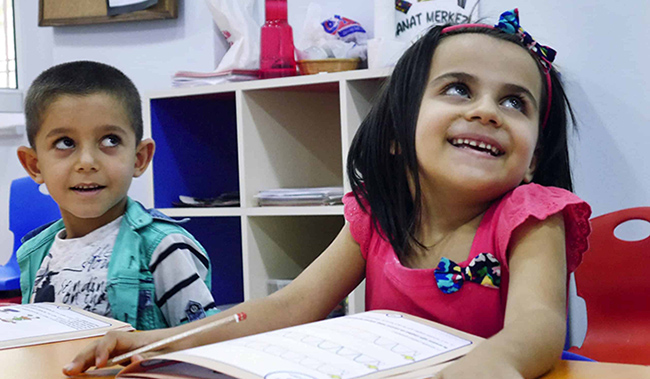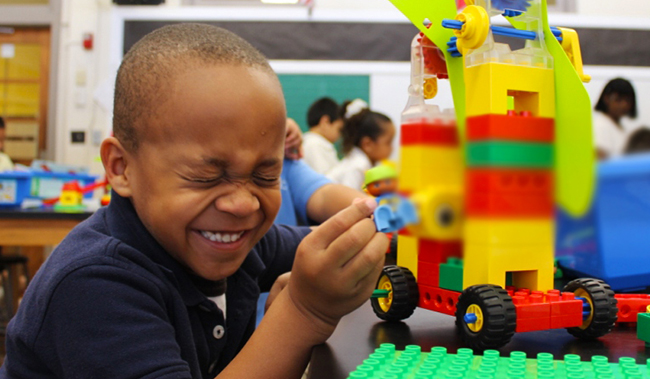Supporting household financial security and community safety
As the COVID-19 pandemic moves into its third year, people around the world continue to face high rates of hardship. As of October 2021, the U.S. Center on Budget and Policy Priorities found that 20 million adults reported difficulty getting enough food, and 12 million Americans are behind on rent. Households with children, Black adults, Latinx/Hispanic adults, and other People of Color are affected the most.[1] Globally, the economy is recovering unevenly. In low-income countries, per-capita GDP is expected to remain below pre-COVID levels for the next few years.[2]
Funders can help by easing access to critical benefits and providing material support. Funders can make the biggest impact by focusing existing government programs, and provisioning direct cash assistance.
Here’s how you can help.
What Donors Can Do
Donors can support basic needs by funding efforts that expand access to benefits for eligible households, provide cash directly to those who need it most, support affordable housing, and ensure community safety.
Below you’ll find a description of each strategy, profiles of nonprofits employing these strategies and additional nonprofits to consider.

Expand Access to Benefits
Public benefits such as unemployment insurance, SNAP, and Medicare help Americans secure healthcare, nutrition, and other basic needs. SNAP is projected to keep 7.9 million people out of poverty in 2021.[1] However, limited awareness and confusing application processes cause benefits to go unclaimed every year. The COVID-19 crisis drastically increased the number of Americans applying for public assistance and put unprecedented strain on state administrators.
Donors can help make public benefits more accessible by funding enrollment assistance, advocating for policy improvements, and improving the capacity of benefits administrators. When looking for organizations to support, ensure that they have strong connections to the communities they intend to impact. For example, the organization should be based within their target community, or partnered with community-based organizations.

Provide Cash Benefits
Bold and scalable policy solutions that address the systemic exclusions which have prevented people from building wealth are a critical component of equitable COVID recovery [1], and direct cash transfers to those in need can have one of the biggest impact. Stimulus checks in the U.S. are estimated to have kept 12.4 million out of poverty in 2021.[2] , but needs continue around the world. Lockdowns, illness, and caregiving duties have prevented people around the world from earning a livelihood. In low-income countries, weak or nonexistent social safety nets means there is no buffer to help families afford food, housing, or other basic needs.
One promising solution is to send cash directly to people who are in need. Look for organizations that collaborate with local governments and other nonprofits. A collaborative organization will be able to quickly identify the highest-need populations, implement an efficient application process, and share their findings and results with their peers[4].

Support Affordable Housing
In March 2021, 11 million households were overdue on their mortgage and rent. Black and Latinx/Hispanic households were more than twice as likely to fall behind on their payments than white households, making them more vulnerable to housing instability as eviction moratoriums lift.[1] Even before the pandemic, housing costs represented a significant expenditure for low-income families. More than half of low-income families with children spend more than 50 percent of their incomes on housing.[2] When families spend a large portion of their income on housing, they have less resources to spend on food, healthcare, and other basic needs.
Funders can support advocacy organizations at both the national and local level that work to increase rental assistance, increase the supply of affordable rental homes, and enforce renter protections by mobilizing tenants.[1] At the national level, look for advocacy organizations that protect and expand public spending on important federal programs. At the local level, look for community-based organizations that are experts on the specific housing needs in their areas, and are well-positioned to engage district and state policymakers on local policies such as community land trusts, land use regulations, and renter protections. Community-based organizations also connect tenants to services like legal assistance and housing counseling.

Ensure Community Safety and Prevent Violence
Homicides and other violent crimes spiked in 2020. In a sample of 34 cities, 2020 homicide rates were 30% higher than in 2019. Cities with higher poverty and unemployment rates were impacted the most.[1] Integrated services help by connecting young adults who are at risk of violence and their families to social services that are otherwise disconnected and uncoordinated. For example, a program might provide mentoring and cognitive behavioral therapy, as well as job training and benefits enrollment. Donors can help young people at risk from violence by provide wraparound services that can help people with complex needs improve their mental health and functioning in their homes, schools, and communities. Research on wraparound’s effectiveness for youth and family interventions showed that of 22 studies reviewed, 15 showed positive results compared to the control or comparison condition.[1]
Look for direct services organization that are based within their target community, or that larger organizations are partnered with community-based organizations. Staff should speak the same language as the target-population, and have strong personal ties to the communities they operate in.
Opportunities for Impact
Nonprofits Making an Impact
To help donors see what an effective program can look like, we highlight four nonprofit organizations that are employing a range of strategies to secure basic needs for individuals, families, and communities.
Organizations to Support
One of the first decisions donors who want to support basic economic needs and household financial security need to make is what community they intend to help. Here we share a range of organizations in the U.S. and internationally that are applying successful strategies that you can fund or use as a lens to find organizations in the communities that matter to you. We sourced these organizations from recent applied research, past guidance, and partnerships with Greenlight Fund and Lipman Family Prize.
Expand access to benefits
Code for America uses the principles and practices of the digital age to improve how the government serves the public, particularly by breaking down barriers in the criminal legal system, strengthening the social safety net, and promoting economic justice through tax benefits.
Compass works to expand the scope and impact of HUD’s Family Self-Sufficiency (FSS) program, a promising but underutilized savings and employment program for families living in federally subsidized housing.
Single Stop builds pathways out of poverty by leveraging partnerships and technology to connect people to existing resources, all through a unique one-stop shop.
Thought Leadership
Actionable Intelligence for Social Policy (AISP) at the University of Pennsylvania School of Social Policy & Practice works to develop data systems that integrate relevant information so that agencies working for good can serve families and communities better, faster, and smarter.
Provide affordable housing
Compass works to expand the scope and impact of HUD’s Family Self-Sufficiency (FSS) program, a promising but underutilized savings and employment program for families living in federally subsidized housing.
HomeStart’s Renew Collaborative is an eviction prevention program that supports families and prevents learning disruptions.
LIFT coaches help parents set objectives like securing a safe home, living wages and a better education and connects them to the financial resources and networks they need.
Urban Institute provides policymakers and practitioners with the evidence-based, nonpartisan research they need to make smart decisions and implement practical solutions. Their research includes housing policy and finance.
Provide cash benefits
Hope Credit Union builds assets and improves lives in economically distressed areas of the Deep South by providing access to high quality financial products and related services.
LIFT coaches help parents set objectives like securing a safe home, living wages and a better education. They then connect them to the financial resources and networks they need to make those dreams a reality.
Springboard to Opportunities: Magnolia Mothers Trust: In the fall of 2018, Springboard to Opportunities announced The Magnolia Mother’s Trust, an new initiative that provides low-income, African-American mothers in Jackson, Mississippi $1,000 cash on a monthly basis, no strings attached, for 12 months straight. While there have been several initiatives for a guaranteed income worldwide, The Magnolia Mother’s Trust was the first to start this work in the United States and remains the only initiative that specifically targets extremely low-income, Black mothers living in affordable housing in the United States.
Thought Leadership
Center for Guaranteed Income Research is an applied research center at the University of Pennsylvania School of Social Policy & Practice specializing in cash-transfer research, evaluation, pilot design, and narrative change.
Economic Security Project catalyzes ideas that build economic power for all Americans by serving as a convener, strategist and funder.
Ensure community safety and prevent violence
READI Chicago is an innovative response to gun violence in Chicago. The program connects people most highly impacted by gun violence to paid transitional jobs, cognitive behavioral therapy, and wrap-around support services to help them create a viable path for a different future, and to help reduce violence in the city’s most impacted neighborhoods. READI Chicago is a two-year engagement – 18 months of a paid transitional job, cognitive behavioral therapy and support services, plus an additional six months of follow-up case management and coaching support to help participants successfully transition to unsubsidized employment.
Urban Labs Crime Lab partners with cities and communities to use data and rigorous research to design, test and scale programs and policies that enhance public safety, improve educational outcomes, and advance justice.


